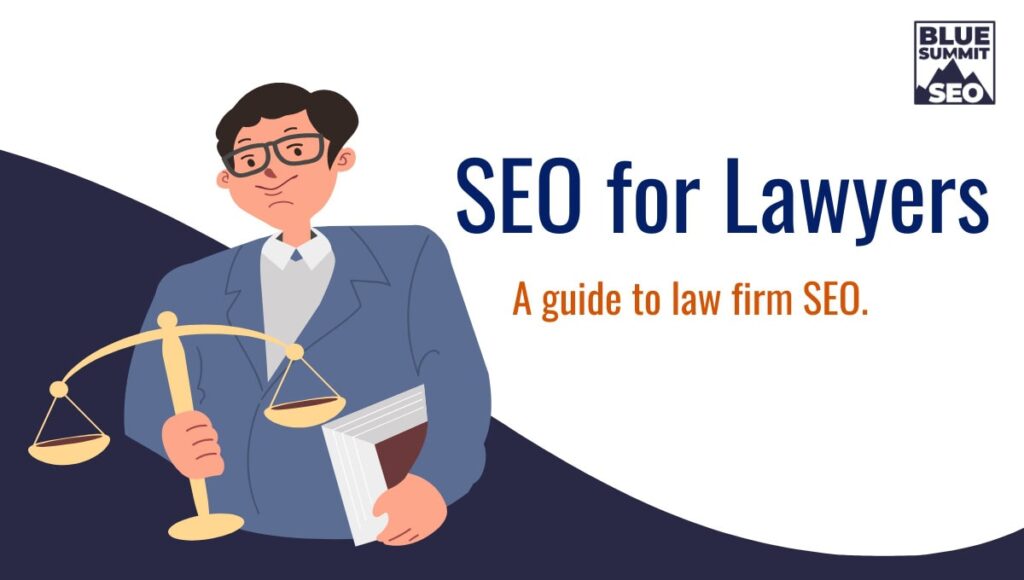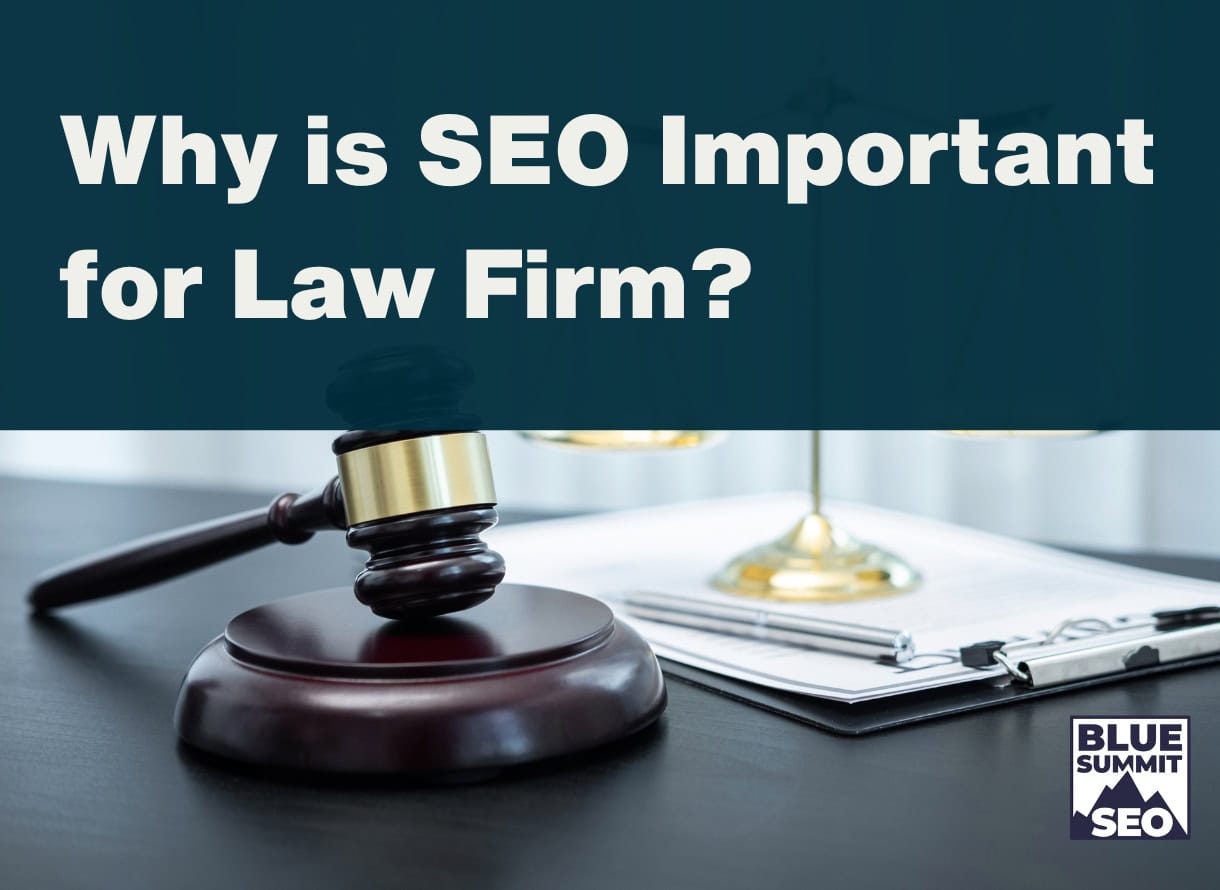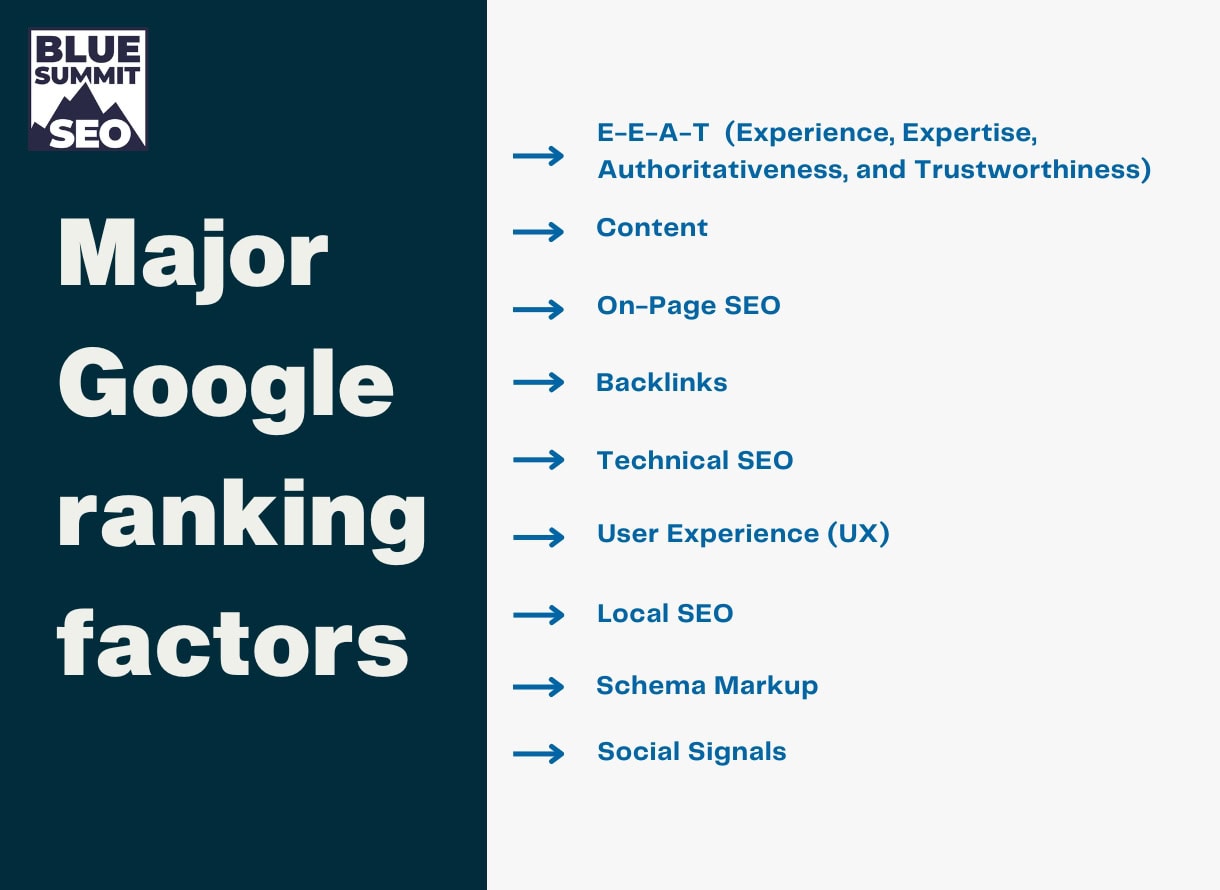SEO For Lawyers – A Guide To Law Firm SEO

Statistics from the National Law Review indicate that 96% of potential clients use search engines to find lawyers. This translates into a massive opportunity for law firms to leverage the power of SEO (Search Engine Optimization) and establish a strong online presence.
If your firm isn’t dominating the first page of search results, you’re missing out on high-value clients. Whether you need a complete SEO overhaul or want to enhance your strategy, this guide is your roadmap to online visibility and outsmarting the competition.
What is SEO for lawyers?
For lawyers, SEO (Search Engine Optimization) is the key to connecting with potential clients who are actively searching for your services online. It’s a strategic process to make your website rank higher on Google, ensuring the right people find you when they need legal help.
This targeted strategy includes optimizing your site’s structure, enhancing content with relevant keywords like “personal injury lawyer” and “best personal injury lawyer,” and building credible backlinks to establish authority.
By focusing on SEO, you’re not just waiting for clients to find you; you’re actively reaching out to them where they start their search for legal help.
Why SEO is important for a law firm’s website?

Law firm SEO is important because it strategically places your firm’s practice in front of potential clients when they search for legal services online.
On average, more than 45% of desktop searchers click an organic search result, and 27.6% click on something to enhance their search (like a search suggestion).
Therefore, the higher you rank in organic search results, the more exposure and clicks you’re likely to get:
In a market where every client counts and the competition is fierce, appearing on the first page of Google isn’t just an advantage; it’s a necessity. Effective SEO ensures that when people search for keywords like “personal injury lawyers” or “best personal injury lawyer,” your firm shows up as a top result, significantly increasing your chances of being chosen over competitors.
Furthermore, a well-optimized website builds trust and credibility with potential clients. High search visibility signals expertise and authority, which is important for conversion.
SEO for lawyers: Fundamentals
These are some fundamentals you must know to understand SEO better:
Keyword research
Identifying keywords that potential clients use to find legal services is important for targeting your audience effectively. Analyzing search terms relevant to your practice areas and integrating them into your website content improves visibility and attracts more qualified leads.
Content optimization
Google loves websites that keep visitors hooked. Craft informative blog posts, articles, and FAQs that address your target audience’s legal needs. Valuable content positions you as a go-to authority and keeps visitors connected to your site. Creating high-quality content to provide real value, positioning your firm as a knowledgeable and trustworthy choice.
On-Page SEO
It’s all about making your content accessible for people and search engines to understand. Optimize your site by crafting clear titles and meta descriptions, structuring content with proper headers, and embedding high-quality visuals. Include strategic internal linking and naturally integrate keywords into your content, URLs, and image alt texts. On-page SEO techniques improve user engagement and help Google accurately index and rank your pages, enhancing visibility and attracting more prospective clients.
Link building
Backlinks are votes of confidence from other websites. When high-authority legal sites link back to yours, it tells Google you’re trustworthy and relevant. Create link-worthy content to score those valuable links and build relationships with other legal professionals. Focus on acquiring links from legal directories, reputable legal blogs, and local business networks to boost your site’s authority and relevance.
Technical SEO
Nobody likes waiting, especially Google. Technical aspects like mobile-friendliness, fast loading speeds, and a clear website structure affect search engine ranking. A smooth user experience keeps visitors engaged, tells Google your website is well-maintained, and ranks it.
User Experience (UX)
Clear navigation, an attractive design, and easy access to information are key. When visitors find what they need quickly, they stay longer, sending positive signals to Google.
Local SEO
Effective Local SEO helps you rank higher in local search results, making it easier for potential clients in your community to find you. You must optimize your Google Business Profile (GBP), gather local reviews, and ensure your name, address, and phone number (NAP) are consistent across all online platforms.
Major Google ranking factors

Google uses hundreds of signals to decide which websites deserve top rankings. It uses a complex algorithm to evaluate and rank pages, focusing on various elements that assess the relevance and quality of a website.
Below are the major factors that Google considers when determining where your webpage should appear in search results:
- E-E-A-T (Experience, Expertise, Authoritativeness, and Trustworthiness)
- Content
- On-Page SEO
- Backlinks
- Technical SEO
- User Experience (UX)
- Local SEO
- Schema Markup
- Social Signals
The bottom line
Attorney SEO enhances a law firm’s website visibility on search engines, which is crucial as most clients begin their attorney search on Google. This strategy offers long-term growth by focusing on keyword research, high-quality content, link building, on-page optimization, and technical upkeep to ensure Google can effectively index the site. Performance is tracked through key SEO metrics like organic traffic and keyword rankings, alongside business metrics such as consultations and case signings, to gauge the strategy’s impact and ROI.
Ready to watch qualified leads convert into loyal clients? Contact us at Blue Summit SEO today for a free consultation and discover how a customized attorney SEO strategy can propel your firm’s growth.
Frequently Asked Questions
How much does SEO for lawyers cost?
Generally, you can expect to pay between $3,000 and $15,000 per month for services from a lawyer’s SEO agency.
However, the exact cost will depend on several factors, including your website’s current ranking, local market competition, and practice area.
Why is local SEO important for law firms?
Local SEO helps attract nearby clients by:
- Boosting local search ranking
- Targeting relevant keywords
- Building trust with a strong local presence
- Offering a cost-effective marketing approach
What type of content is best for law firm SEO?
The best content for law firm SEO is authoritative, informative, and directly addresses potential clients’ needs and questions. It includes detailed blog posts, FAQs, case studies, and guides that cover specific legal issues or processes.
How long should an attorney SEO campaign last?
SEO for attorneys is an ongoing process, not a one-time project. While initial improvements can often be seen within a few months, a continuous SEO effort is necessary to maintain and improve rankings over time.
The legal industry is highly competitive, and search engine algorithms frequently change, so ongoing adjustments, content updates, and strategy refinements are essential for sustained SEO success.
- Client-oriented
- Independent
- Competent
- Results-driven
- Problem-solving
- Transparent

Schedule a Free Consultation
"*" indicates required fields
